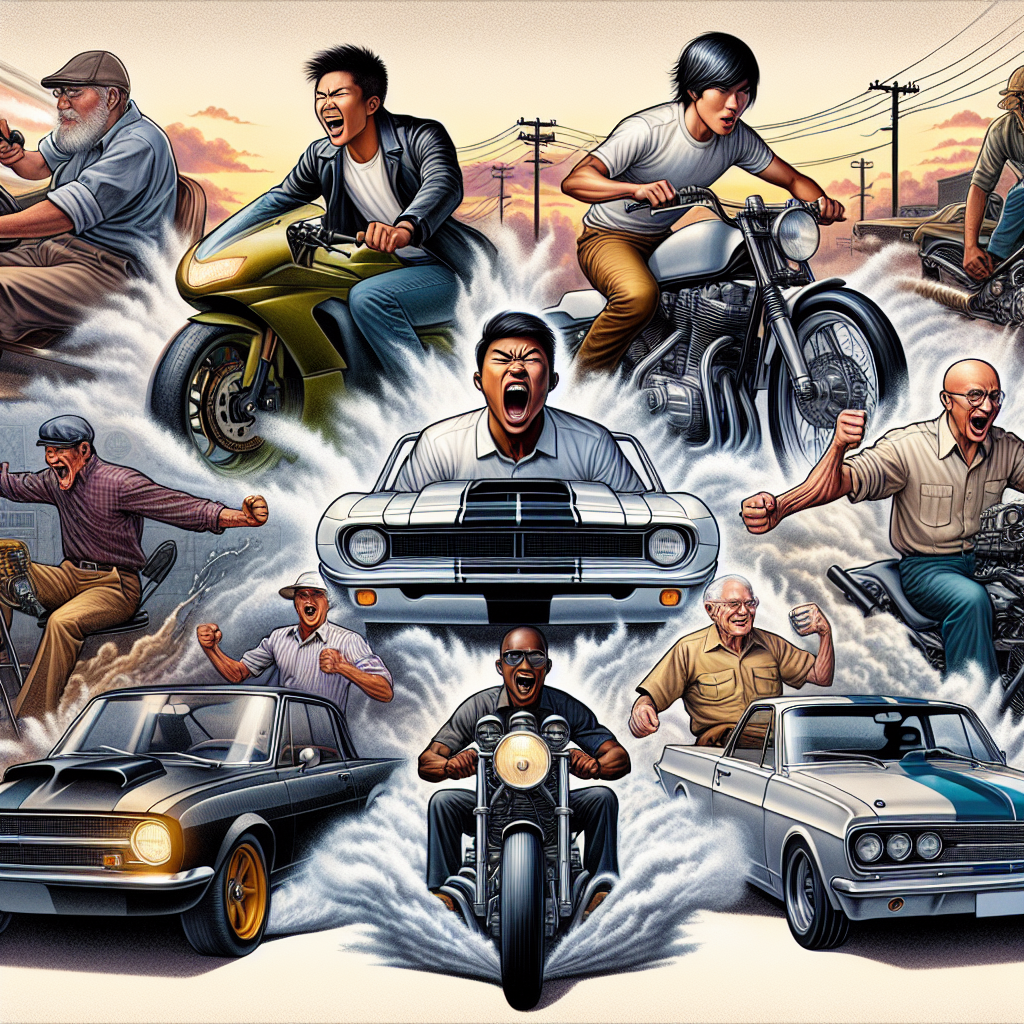===
The phenomenon of men revving their engines is more than just a calculated display of power; it’s a nuanced expression of identity, social standing, and emotional resonance. Understanding the reasons behind this behavior can unlock deeper insights into gender dynamics and societal expectations. While some may dismiss it as juvenile bravado, there exists an intricate weave of psychological and cultural threads that compel men to engage in this behavior. If you’ve ever wondered why the roar of an engine can evoke such passion, you’re in the right place. Let’s dive deep into the motivations and influences behind this intriguing behavior.
Understanding the Psychology of Engine Revving in Men
At its core, engine revving can be viewed as a manifestation of masculinity. The act of revving often serves as an extension of a man’s personality, allowing him to assert control and dominance. This connection between automobiles and masculinity is deeply ingrained within a cultural framework; the sound of a revved engine symbolizes power and performance. For many men, this act becomes an emotional outlet, providing a vehicle—both literally and metaphorically—for self-expression. The adrenaline rush associated with operating a powerful machine heightens this connection, leading to an almost primal response that resonates with their identity.
Moreover, revving an engine often becomes a medium for competition. Whether consciously or subconsciously, men find themselves in an unspoken contest for validation among peers. The auditory cue of an engine revving acts as a challenge, a way of saying, “Look at my vehicle and what it can do.” This behavior is not merely about the physical act; it stirs feelings of camaraderie, rivalry, and, at times, jealousy within male social circles. When one man revs his engine, it can spur others to do the same, feeding into a cycle of validation that reinforces masculine stereotypes.
Psychologically, revving can also serve as a stress release mechanism. The act generates a physiological response, releasing adrenaline which can alleviate feelings of anxiety or tension. For those navigating the pressures of modern life, this brief moment of auditory exhilaration can provide an escape, albeit temporary. It’s a high-octane solution to everyday pressures, manifesting in an audible shout of freedom that resonates deeply within the male psyche.
The Social and Cultural Factors Influencing Engine Noise
Cultural narratives surrounding automobiles permeate multiple aspects of society, often glorifying fast cars and the men who drive them. Movies, advertisements, and social media amplify the allure of powerful vehicles, painting a romanticized picture of speed and rebellion. These narratives shape societal perceptions, fostering an environment where engine revving becomes a socially accepted, if not celebrated, practice. Men grow up idolizing automotive icons, and this influence shapes their understanding of masculinity, with engine noise often viewed as a rite of passage.
Additionally, the car enthusiast culture plays a pivotal role in normalizing and encouraging this behavior. Car shows and racing events form communities where engine revving is not only expected but applauded. Within these spaces, men find a sense of belonging and shared identity that reinforces their passion for vehicles and engine noise. The more one participates in this culture, the more the behavior becomes entrenched, often spilling into everyday interactions, whether in parking lots or during casual drives.
Furthermore, the rise of social media has amplified this phenomenon. Platforms like Instagram and TikTok are flooded with content showcasing powerful cars, complete with the intoxicating sound of revved engines. This digital landscape creates a feedback loop where men are encouraged to share their automotive experiences, seeking likes and validation from an audience. In this context, revving becomes more than just a sound; it’s a badge of honor, a way to carve out a digital identity that aligns with societal ideals of masculinity and power.
===
Understanding the complex web of psychological motivations and cultural influences behind men revving their engines reveals far more than a mere display of automotive prowess. It speaks to deeper aspects of identity, community, and emotional expression. As we explore this behavior, it becomes clear that the roar of an engine encapsulates a rich tapestry of societal narratives and personal stories. For those intrigued by this phenomenon, the next time you hear a car rev, remember that it’s more than just noise; it’s a multifaceted expression of modern masculinity that resonates across generations. Engage with these insights, and consider how your own experiences may reflect or challenge these narratives.
Managing Degenerative Disc Disease: The Role of YogaSubmitting Your Web Wrapped Curio: A Step-by-Step GuideStrategic Hiding Spots in Life is Strange Pool SceneRelevant LinkRelevant LinkRelevant LinkExploring the Impact of 40,000 Daily Steps on Weight LossEffective Yoga Poses for Optimal Weight Loss and WellnessComprehensive Reviews of Happy Mammoth Weight Loss ProgramRelevant LinkRelevant LinkRelevant Link
